Uncategorized
-
 Neuroscience
NeuroscienceForgetting can be hard work for your brain
It can take more work to forget something than to remember it.
-
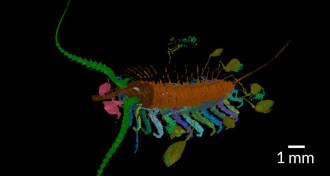 Animals
AnimalsAncient arthropod kept its brood close
A newly discovered ancient arthropod may offer clues on the evolution of parenting styles.
-
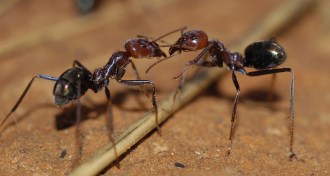 Animals
AnimalsAnt antennae provide chemical ID
Ants use their antennae to identify nest-mates and potential invaders. But antennae also produce the key compounds that ants use to tell friend from foe.
-
 Psychology
PsychologyMarijuana use starting in youth implicated in financial woes
Long-term, heavy pot smoking linked to financial troubles by age 38.
By Bruce Bower -
 Paleontology
PaleontologyDisney’s ‘The Jungle Book’ resurrects giant extinct ape
Disney’s latest version of ‘The Jungle Book’ features Gigantopithecus, the largest known ape ever to have lived.
By Erin Wayman -
 Life
LifeNew habitat monitoring tools find hope for tigers
Free tools such Google Earth Engine and Global Forest Watch show there’s still enough forest left for tigers — if it’s protected.
By Susan Milius -
 Physics
PhysicsFaint gravitational waves could soon be on LIGO’s radar
In a few years, LIGO could detect hints of faint gravitational waves from black holes too far away to be seen directly.
-
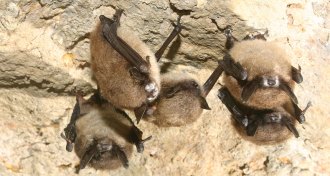 Animals
AnimalsLethal bat disease moves west
For the first time, the bat-killing white-nose syndrome shows up west of the Rockies.
By Susan Milius -
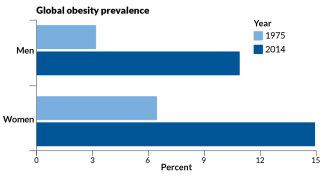 Health & Medicine
Health & MedicineGlobal obesity rates continue to climb
Despite public health campaigns, the worldwide prevalence of obesity is on the rise, an analysis of BMI data suggest.
By Meghan Rosen -
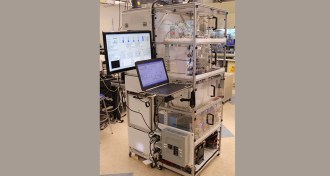 Health & Medicine
Health & MedicineMachine makes drugs on demand
A new drug-making system rapidly produces a variety of medications on demand.
-
 Astronomy
AstronomyOdd white dwarf found with mostly oxygen atmosphere
A white dwarf that has been stripped of its hydrogen and helium provides a rare peek inside the core of a dead massive star.
-
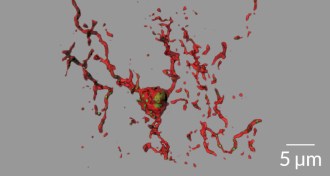 Neuroscience
NeuroscienceNerve cell links severed in early stages of Alzheimer’s
Nerve cell connections may be trimmed too much in early stages of Alzheimer’s.